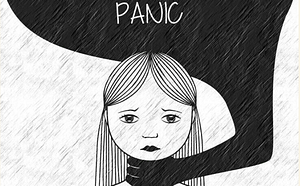Sleep is an essential part of being human. Sleep is the foundation of a human being’s existence, and research has demonstrated the critical relationship between sleep and bodily functions. We frequently observe that when we are ill, we sleep longer than usual, and doctors may even recommend it in situations involving surgeries, anesthesia, accidents, and other similar circumstances. The body’s cells’ ability to heal depends on it. Many of the essential functions of our body are said to occur while we sleep, according to researchers. We continue to experience altered consciousness during this period.
Table of Contents
Let us take a brief look at the fundamentals of sleep.
Sleep is usually of two kinds:
There are distinct patterns that set the four stages of NREM apart from each other. In the initial phases, it essentially involves remaining conscious until sleep. During the second stage of sleep, breathing and heart rate regulate the body’s temperature. The SWS stages are deep sleep stages.
In the first stage, normal sleep begins. The exceptions are newborn children and those with neurological disorders. This stage lasts up to 1–7 minutes and constitutes around 2–5 percent of the whole sleep. A stronger stimulus is required to awaken the person in sleep, as it is more intense as compared to stage 1. This lasts for about 10–15 minutes and constitutes around 40–55 percent of the individual’s sleep. Stage 3, constituting only 3–8 percent of the sleep, occurs for only a minute or two, while the 4th stage of the NREM cycle lasts for about 20 minutes, making up up to 10–15 percent of the sleep. The 3rd and 4th stages of this sleep cycle are together termed slow-wave sleep (SWS).
In the REM stages of the cycle, the individual tends to exhibit rapid eye movements, which are similar during their phase of wakefulness. Research has shown that while a person dreams, their heart rate increases. It has been specified (by Crick and Mitchison, 1983; Smith and Lapp, 1991) that the REM stage has an important role in memory consolidation.
A healthy individual can tolerate a number of physiological changes that take place in their body. However, for those with neurological disorders, it can result in minor to major problems. The various modifications that occur in an individual’s system include the following:
- The ANS controls blood pressure fluctuations and heart rate.
- Heart attacks (myocardial infarction) during the early morning are common due to the increased heart rate.
- The sympathetic nervous system exhibits a noticeable spike in response to an increase in heart rate and blood pressure during the NREM phase of the sleep cycle.
- the rate of respiration (as well as ventilation) increases in the individual during the REM sleep stage.
- Data on hypoventilation during NREM, resulting from various factors, has been documented.
- There has been evidence of decreased or decreased blood flow data during the NREM stage.
- There is a visible decrease in the excretion of sodium, potassium, and calcium, which results in reduced urine flow.
- Growth-stimulating hormone is secreted during the first part of the cycle and increases progressively as SWS progresses.
What is the significance of dreaming?
Dreams are characterized by sensory, cognitive, and emotional events that occur during sleep and can be considered a form of consciousness. The primary requirements for dreams are:
- The person dreaming has no control over the images in their mind or how they are triggered in their memory.
- Dreaming is unlike any other cognitive state in that it has not been the subject of extensive research, and most people mistake it for a different concept.
Lucid dreams and nightmares are two of the many different kinds of dreams that exist. A person experiences stress and fear when they have nightmares, which are typically upsetting in nature. However, because the dreamer is aware that they are dreaming, they have some control over their dream during lucid dreams. Researchers assert that our thoughts just before bed influence the dreams we imagine having. We frequently observe that our dreams often mirror our most pressing thoughts during certain periods. Sigmund Freud had discussed the idea of repression, saying that negative memories have a tendency to be repressed in the mind and are frequently brought back to life in dreams in a variety of ways. Numerous investigations have revealed that
- It requires seven days or a week to process the memories into dream incorporation.
- Further improving socioeconomic and memory consolidation processes are the aforementioned processes.
As we delve further into this information, studies say that memories (on the basis of the dream) are of two types
- autobiographical/long-lasting memories.
- Episodic memory is the memory of specific event(s).
Sleep disorders: There are many different types of sleep disorders, and any modifications to a person’s sleep schedule can have a detrimental effect on their mental health.
- Sleep apnea: frequent choking and breathing difficulties
- Insomnia or insufficiency sleep
- Circadian rhythm disorder
- Movement disorder
- Parasomnia
- Hypersomnia ( excess of sleep)
What is insomnia?
In contemporary times, a broad spectrum of people frequently use the term “insomnia.” The person suffering from this sleep disorder finds it difficult to maintain a regular sleep schedule. Sleep deprivation or early wakefulness are the root causes of this. The disorder can have both short-term (acute) effects and long-term (chronic) effects. People who experience short-term insomnia typically struggle to concentrate on their everyday tasks, exhibit noticeable mood swings, and become easily agitated and irritated. Researchers have reported that long-term sleeplessness has a number of physiological effects, including obesity and cardiovascular disorders. There are now several reasons that can be primary cause of Insomnia, like-
- Jet lag and traveling long distances
- Uncomfortable ambience, which does not make resting easy
- Drugs or substance abuse
- Living with a person who requires constant medical help
- Constant nightmares
- Using smartphones and overdoing screen time is also a leading cause in recent times.
In addition to drugs like beta and alpha blockers and corticosteroids, there are a number of treatments that are currently available. Although CBT (cognitive behavioral therapy) and counseling have become the most popular treatments for the disorder, there are other important approaches as well.
How is insomnia influenced by the use of technology?
The increased amount of time people spend using screens these days exacerbates disorders caused by irregular sleep patterns, as was previously mentioned. Among the advantages and disadvantages of technology use, the latter significantly harms our mental health. Everyone understands the value of having a mobile device on hand at all times because it prevents boredom, even young adults and teenagers. Mobile phones are carried everywhere—while traveling, to avoid trouble at an uninvited social gathering, in class during a boring lecture, in a metro, or even in the restrooms. The primary cause of people’s sharp decline in attention spans is the 60-second videos that are distributed as “reels,” “shorts,” and “stories.” In addition to entertaining the audience, scrolling endlessly puts viewers’ mental health at risk. You make up for the lost sleep by scrolling through social media or staring at the screen after a light out. The viewers’ health is at risk, both mentally and physically. The excessive or improper use of technology has had a significant effect on people’s lifestyles as well.
How does our diet impact our sleep?
A balanced diet has consistently aided people in making the transition to healthier living. The foods we eat have a big impact on how our sleep patterns are disturbed. Excessive consumption of alcohol and oily and spicy foods has led to the failure of the system, and ultimately, sleep has been compromised. The person’s inability to manage their daily activities is a result of either inadequate or incomplete sleep. Including more greens, protein, and vitamins in the diet has always resulted in boosted health. Incorporating walnuts and cashews has been proven to be beneficial for good sleep. Nutritionists advise avoiding caffeine as much as possible if you want your system to empty out quickly. Lime water is a great substitute for your morning cup of coffee since it purges the body of extra waste and leaves the skin feeling radiant and hydrated.
Conclusion
In conclusion, getting seven to nine hours of sleep every day is vital for a healthy body and mind. The body will only operate at its peak efficiency at that point. The body needs sleep in order to recover from the work it does throughout the day. Sleep is not an option.
Frequently Asked Questions.
1. What is insomnia?
Insomnia is defined as a lack of sleep, which is caused by several factors. There are effective ways to treat the disorder.
2. What is the most effective way to sleep?
Recognizing that your body and mind need rest and are fatigued is essential to getting a good night’s sleep. It is recommended that cell phones be put away one hour prior to bedtime. Preceding bedtime is an excellent opportunity to journal since it is an excellent method for monitoring feelings. You can enter the realm of relaxation and detach from the outside world with the aid of this.
3. Is social media harmful for sleep?
Though it should not be harmful to anyone personally, social media is actually endangering the audience’s health. People’s lives are being adversely affected by the excessive use of technology. Modern technology usage has a significant impact on sleep deprivation, which is becoming worse over time.
4. Does exercise help to improve sleep?
Yoga and physical activity have actually been shown to improve sleep. ExercisMany hormones are released when you exercise. Dopamine is the neurotransmitter that gives happiness to the person. This aids in the promotion of sleep in several ways.



